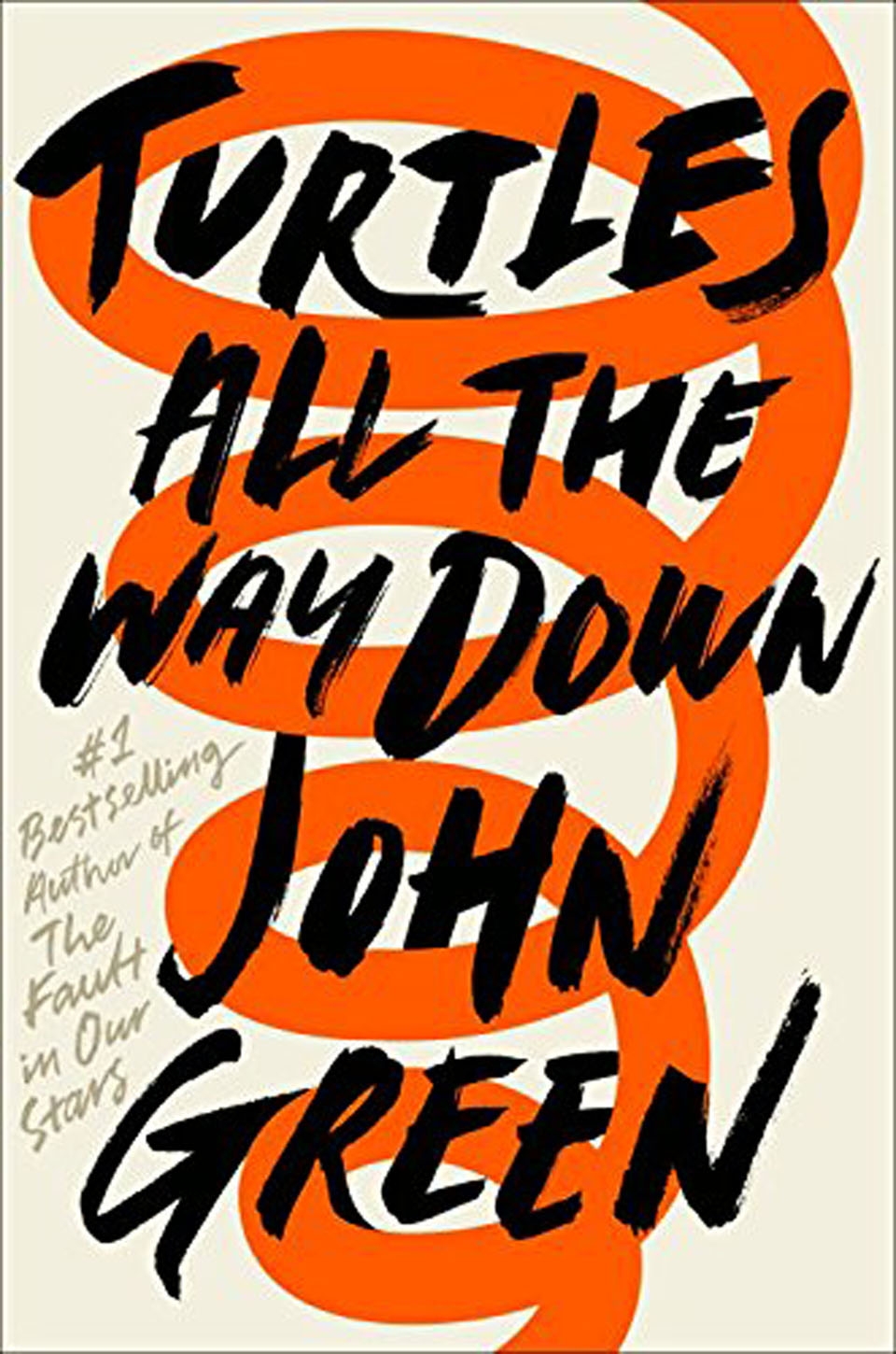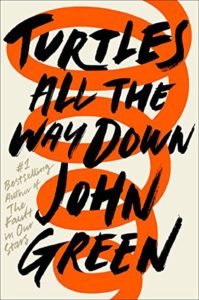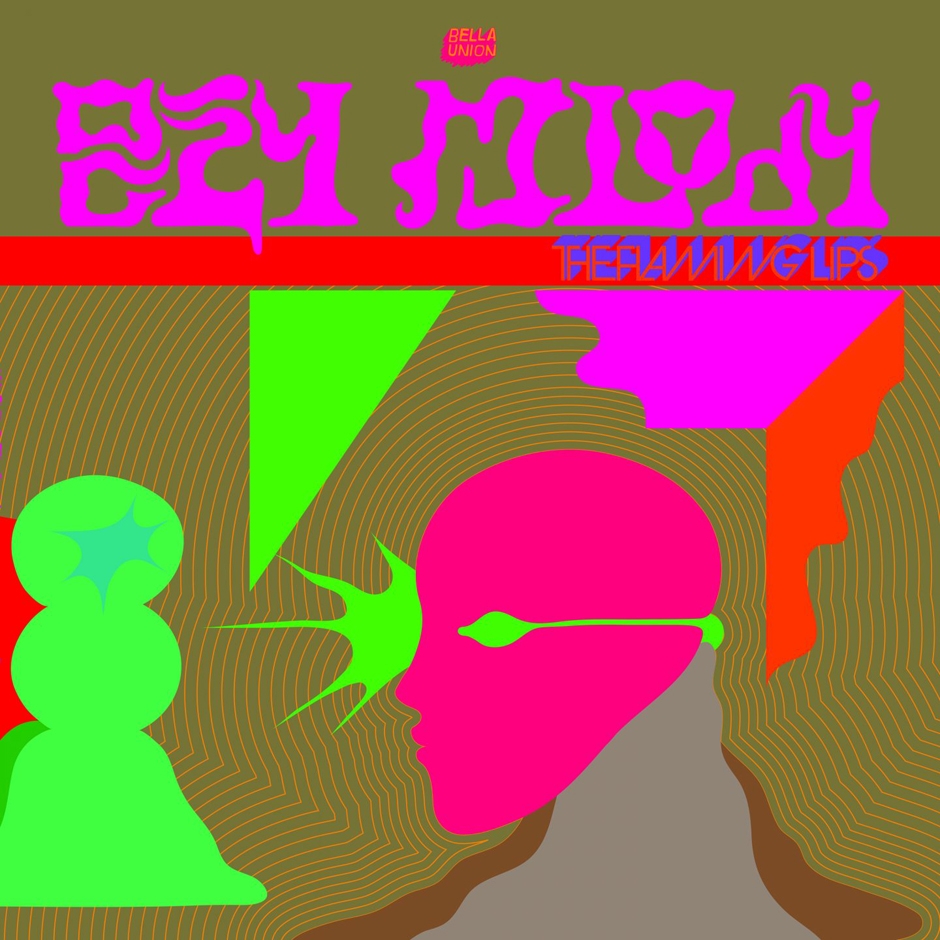

Like the protagonist of his book, John Green has obsessive-compulsive disorder. He has spoken candidly in the past about how it affects his life.
By Madeline Bartos | Staff Writer
10/19/17
John Green’s Turtles All the Way Down is not The Fault in Our Stars. There is no swoon-worthy love interest and no dramatic proclamation of love. No, Turtles All the Way Down is not The Fault in Our Stars — it’s better. Despite the lack of adorable witty banter and romantic international plane rides, Green crafted such a strong protagonist that Turtles All the Way Down is on an entirely different level than his previous works.
The novel, Green’s first in 5 years, tells the story of Aza Holmes, a 16-year-old girl who battles mental illness while trying to juggle her roles as daughter, best friend and potential girlfriend. Aza jumps off the page with her relatability as a real human rather than a fictitious character. I find when some authors try to write characters with mental illness, the characters can come off as whiny to readers who have never experienced a mental illness. Aza is so well-rounded and identifiable that by using her as a narrator, Green bridges the communication gap between people who have anxiety and OCD and readers who don’t understand what it’s like.
Turtles All the Way Down has two plots — internal and external. The internal plot is beautiful. Aza’s battle with her mental illness is captivating, emotional and heart-breaking. She is so raw, and I felt for her through every step of her arc despite not having a mental illness myself.
The external story, however, fell flat on its face. I had hoped the plot would be about Aza and her best friend Daisy trying to solve the mysterious disappearance of love-interest Davis’ billionaire father. Instead, it is about Aza’s relationships with the important people and her life, which weaves together with the her increasing anxiety. The complexity of Aza’s internal conflict overshadows the external story, which is great for her as a character, but not so great for the plot.
The plot could have pulled its own weight if the characters were half as complex as Aza. As an entertaining, larger-than-life figure, Daisy would have fit the bill. As a relatable, best-friend figure, however, she comes up very short. Aside from her affection for Star Wars, Daisy lacks the depth to hold her own against any other best friends Green has written. She feels forced, and it occasionally became evident that Green tried to top The Fault in Our Stars just by adding an eccentric with extra pizzazz.
Early in Turtles, Green tries to kick his habit of creating formulaic and predictable best friends by positioning Aza as Daisy’s sidekick, not the other way around. Unfortunately, while Daisy is likeable, I’ve already tucked her away in my memory to be forgotten and mixed up with Green’s other side kicks.
While Daisy was tolerable, I could not like Davis no matter how hard I tried. I may have set myself up for disappointment; I went into Turtles expecting a love interest that would leave me speechless like Gus from The Fault in Our Stars. Next to Aza’s glowing characterization, however, Davis is nothing but a dim light. He mourns the loss of his father and the effect it has on his brother, but adds very little to the story aside from stuffy poetry, indulgent blog posts and almost-cliche musings about the stars.
Daisy and Davis both left a bad taste in my mouth, but because Aza is such a fantastic character, their failings didn’t matter too much. While the romance in the story between Davis and Aza left a lot to be desired, the outcome was refreshing. For once, a female protagonist didn’t need a man to fix her — not like Davis and his melancholy blog posts was capable of being what Aza needed in a relationship anyhow. Turtles All the Way Down tells the story of a teenage girl who realizes her own power, not because her first love showed her, but because she learns that she possesses strength to carry on. And it’s John Green’s best story yet



